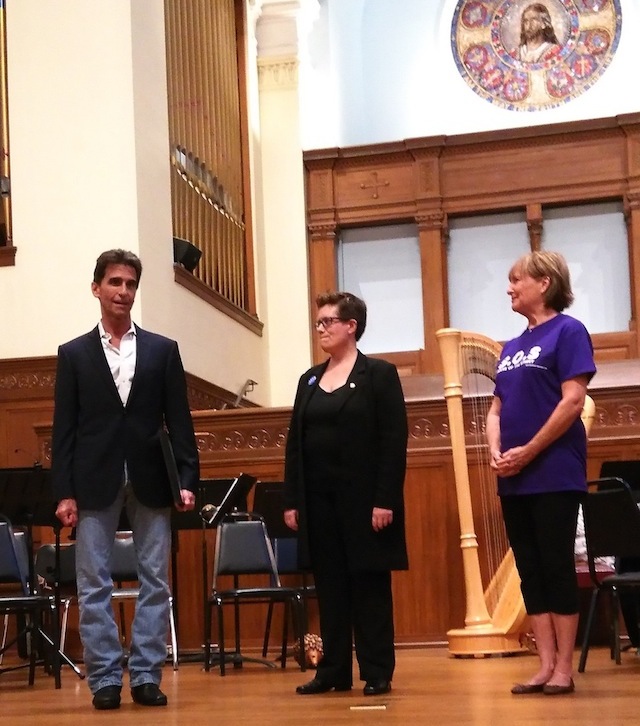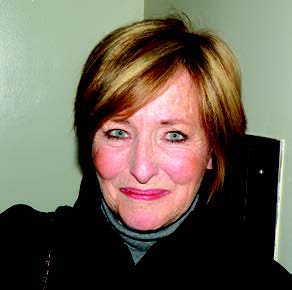911 Call Suggests Meagan Taylor Was Arrested at Iowa Hotel for Being Trans

New audio released by the American Civil Liberties Union appears to indicate that police were called to a Drury Inn & Suites in West Des Moines, Iowa, earlier this year because the manager was suspicious that pair of trans women of color might be "hookers."
Attorneys representing Meagan Taylor, the black trans woman who was arrested and held for eight days in July based on that manager's false suspicion of prostitution, released a copy of the 911 call Tuesday, less than a month after filing a complaint with the Iowa Civil Rights Commission against the Drury Inn & Suites in November.
In the less than two-minute exchange, the manager, who identifies herself as "Kim," describes the two women as "a little unusual," asking the emergency services operator to "run their name or information through the database," because "they're dressed as a woman, but it's a man's driver's license."
When the operator offers to send a police officer to the location, Kim notes that "I'd want it to be discreet, though," before asking that officers arrive quietly and "park in the parking lot, instead of right out front."
The operator pauses, then chuckles, explaining that she cannot run someone's information based on a phone call, because "it's against the law." Kim reiterates that "there's two males, but they're dressed as females," noting that the women have Illinois license driver's licenses — of which she took pictures.
The operator then asks Kim if she is concerned "just because they're dressed as females," prompting the manager to explain that "they're dressed a little bit over-the-top, too; I just want to make sure they're not hookers, either."
In the ACLU blog post accompanying the audio, attorney Chase Strangio cuts to the chase about the motivation for the manager's suspicion about Taylor:
"There was no emergency. Just two young women stopping for the evening at a hotel. … Meagan and her friend were not men dressed as women. They are women who triggered a set of racialized and gendered assumptions about who is appropriate and welcome in public space — still not transgender people of color in far too many places."
Statewide LGBT organization One Iowa also issued a statement condemning Taylor's arrest and incarceration, laying bare the underlying prejudice that led to Taylor's ordeal.
"It is my opinion that Meagan Taylor, an African American transgender woman, was targeted by the general manager of Drury Inn & Suites in West Des Moines because of ignorance, bias and stereotype," said Donna Red Wing, executive director of One Iowa. "Given the remarks made on the 911 call, perhaps the chain should institute a hiring process that weeds out anyone so racist and so transphobic that they would jump to the conclusion that a trans woman with brown skin must be a ‘hooker'."
Taylor's ordeal began July 13, when she and a friend were traveling from Kansas City, Mo., to Illinois for a funeral of that friend's brother. Taylor and her friend, a fellow black trans woman, stopped for the night at the West Des Moines Drury Inn on that date. In a November blog post for the ACLU, Taylor noted that she frequently stayed at the chain's numerous locations, and was a preferred member and "Gold Key" cardholder. She and her friend felt uneasy about the manager's reception when they checked in but proceeded to their room anyway. Shortly thereafter, police knocked on Taylor's door and searched the women and the room for evidence of prostitution.
When police found no evidence the women were engaged in sex work, they arrested Taylor for possessing her transition-related medication, spironolactone hydrochloride, without a prescription. Although she wasn't carrying it at the time, Taylor did have a prescription for the medication, maintains trans pastor Meghan Rohrer, who was instrumental in raising funds to pay Taylor's legal expenses.
During Taylor's eight-day stint in Polk County Jail, she says she was repeatedly strip-searched, patted down by a female guard on her "top half" and a male guard on her "bottom half," then housed in a segregated medical unit because jail staff were unsure whether to house her with men or women.
"When this all happened, I knew exactly what it was," Taylor wrote in that November ACLU blog post. "The racial profiling, the transgender profiling, the harassment, the solitary confinement. I knew why it was happening, and I knew it wasn’t right. I knew something had to change. To experience so many levels of discrimination makes you feel like less of a person. I want to stand up for myself and other Black and transgender people. And so I did."
All charges against Taylor have been dismissed.




 s hotel in Brentwood, Missouri. Photograph: Paul Sableman/
s hotel in Brentwood, Missouri. Photograph: Paul Sableman/







 As word of Taylor's incarceration
As word of Taylor's incarceration